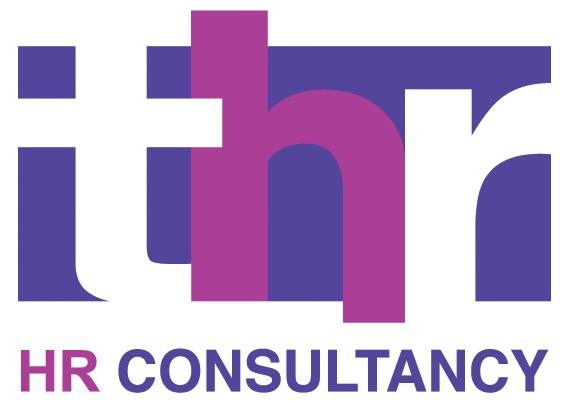Proactive HR – it’s about a lot more than just people and process!

You don’t need me to tell you about the merits of good HR. But there is a difference between good HR and proactive HR. And it’s the difference between your HR team being important and being worth their weight in gold.
We tend to think of HR as a practical approach and reactive response to standard issues. Recruitment, retention, supporting line managers in employee-relations issues (disciplinaries, grievances), remuneration (pay and reward), pension and leaving procedures immediately spring to mind and getting these basics right is of course important.
But proactive HR requires a deeper level of understanding and a more collaborative approach to these issues and the positive impact it can have on your business, is significant.
Understanding
Whilst HR rules and procedures may be fairly black and white, your business certainly isn’t. It’s complex, it’s evolving and its success depends on many factors. That means your HR team needs to have a deep level of understanding about what makes it all tick.
That includes understanding your business’s priorities and values and then ensuring your people-related practices both relate to these and support and / or contribute to achieving the goals of the organisation.
Business alignment
On the one hand, there’s the practical side of HR: ensuring processes are in place. Processes such as:
• Induction and performance reviews,
• contracts of employment,
• a system of job descriptions/evaluation/sign off to ensure recruitment is well managed, planned and considered in terms of what skills and abilities to look for, what compromises are possible in selecting new staff and which are not feasible, and how this fits with the financial plan,
• ensuring interviews are well managed, documented evidence is collated and the process and decisions are fair and legal,
• establish policies and procedures that reflect the values and aspirations of the business.
But a proactive HR team will also ensure that those practices are aligned to what the business is seeking to achieve both now and in the future. A proactive HR team will be aware that bringing in the right talent to take the business into new areas, may mean financial and resource planning for the longer term. A proactive team will be looking to ensure that the timing is right (it can take 6 months to a year from the planning phase to find, recruit and bring on board the right person) and that the steps to be taken are affordable. In short, having a proactive team is all about providing a secondary layer of depth to the “process” process.
Business growth
As part of understanding the business, your HR team also need to understand the evolution of a business. Your business needs change over time (from infancy, maturity, growth, holding market share to developing new markets, etc.).
As a business grows, it might be appropriate to look at a skills-matrix approach to reward (for certain types of business) where training, development and reward are linked to people acquiring or demonstrating a fuller range of skills. Alternatively, a competency framework may provide similar analysis with professional, managerial or technical roles. These can be complex but a proactive HR team will take the lead.
Finally, your HR team should be able to anticipate the many other issues that growth can bring and help you develop innovative and effective solutions before the issues become problems.
Attracting the right people
Recruitment is always important but often more complex than it’s given credit for. Attracting the right people is just the first step. Ensuring the right people are paid a package that sits well with others, but recognises what the recruit potentially brings, is vital.
That may mean you need to find innovative but attractive ways to reward. This will require forward thinking about what else is offered to staff, where you pitch yourself in the salary market (do you pay well and have limited other benefits, or pay less but provide access to a generous range of employee benefits? Do you offer specific benefits for everyone or more for certain groups of staff?)
But reward may not necessarily be just financial and you might instead focus on the values of the business and or the individuals concerned. A proactive HR team will help you identify the right approach as well as the right package and communicate this approach to existing and potential employees, fulfilling the double role of successful recruitment as well as improving brand reputation.
Retention and protection
And about when things go wrong? Do your contracts provide adequate protection for your business, if for example, your key sales manager leaves? Do you have the ability to prevent them from continuing working with clients, at least while you establish ways to secure and retain those clients with a replacement sales manager?
Or what if your market/s change or shrink? However positive and successful your business is now, a proactive HR team will have anticipated the worst and put in place protective measures, which deal with re-deployment, retraining, redundancy or TUPE transfer to your competitor. How smoothly you can handle such issues has a massive bearing on cost, time and morale.
Embracing change
How often do you become aware of a new law or piece of legislation that affects your company but has been in force for some time? Or perhaps, it was vaguely on your periphery but you haven’t really given it any thought yet?
When you’re involved at the coal face of a business, it’s not always possible to look ahead and anticipate or research possible legal or market changes. But again, a proactive HR department will take the lead on this, anticipating change as well as how to respond. For example, dealing with the Apprentice Levy, planning for and responding to something like Brexit, the removal of the retirement age or the Equality Act. Your HR team should both provide advice about what these changes will mean for the business and find solutions that work.
That doesn’t just mean making sure your business isn’t caught out by the changes. It means ensuring your business has a reputation for being forward thinking, innovative and fair as well as compliant. It’s not just about handling grievances when they occur as a result of market or legal changes. It’s about making sure those situations never arise because things are well handled and communicated well in advance.
Data and evidence
In any successful business, well written and accessible (ideally electronic) policies and employee handbooks are important. Ensuring that both individual records and also the data from all records can be accumulated and analysed to provide information for managing (turnover of staff, absence rates, spend on training/development, return on investment on this spending as a minimum) is essential. It provides the sort of information that facilitates success and/or change.
You might want to include performance reviews in your general data or you might want to keep them separate (perhaps even linked to a capacity to collect 360 feedback to help development or to an employee pulse/survey system – to provide feedback about how employees feel about or perceive aspects of the company).
The introduction of a system that makes effective use of all company data, is accessible by different people for different purposes and is intuitive to use, takes understanding, research and planning. And its effect is likely to be far reaching.
A new era
The landscape of the modern business and market place has changed so dramatically over the last few years. Just being good isn’t enough anymore. Being responsive is no longer enough.
For HR, that means a new proactive approach. Being innovative as well as efficient and systemised. Being visionary. Understanding business at a deeper level. This new approach could be the difference between a good business and a booming one. Your HR team doesn’t have to be in house to achieve this but they will need to have more astute business acumen than perhaps was expected or considered acceptable in the past.
With over 27 years HR experience, Tracy Humphrey heads up the team at THR Consulting with an impressive array of qualifications and skills. She specialises in supporting HR departments, planning and implementing change (including handling recruitment and redundancy planning/project implementation) as well as performance and talent management.
If you’d like to embrace all that the next few years bring with confidence that your business and the people in it are ready for change, contact THR Consulting today on 01444 220762.

